A comprehensive view of scientific and technological activities in the
island of Ireland
(North and South).
The Irish Scientist Year Book, established in 1994 by Dr Charles
Mollan, has become a popular and valuable record of broad scientific research undertaken
throughout the country as well as highlighting the need for an increase in funding for
R&D.
Contributors may write about a single project, a series of projects, a completed piece of
research or on-going work. Articles can describe any activity in science in its broadest
sense including: engineering; education; technology; industry; medicine; social science;
agriculture; veterinary science; pharmacy, etc. carried out in Ireland or by Irish people
abroad.
For information on contributing to the 2007 edition of The Irish Scientist please contact:
Geraldine Van Esbeck, Editor,
THE IRISH SCIENTIST YEAR BOOK
Oldbury Publishing Limited, 'Oldbury', 55 Kimmage Road West, Dublin 12.
Phone: (01) 465 2310 From Northern Ireland - 00353 1 465 2310 E-mail: [email protected]
|
|

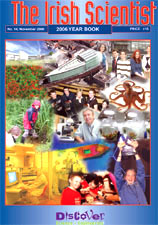
No.14 November 2006
Table of Contents
* * * * *
Index by topics
* * * * *
Index by Author
* * * * *
|

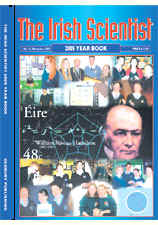
No.13 November 2005
Table of Contents
* * * * *
Index by topics
* * * * *
Index by Author
* * * * *
|

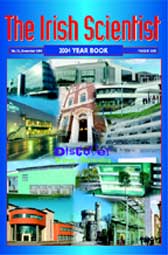
No.12 November 2004
Table of Contents
* * * * *
Index by topics
* * * * *
Index by Author
* * * * *
|

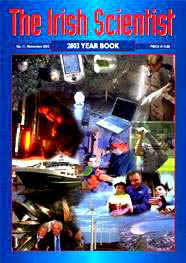
No.11 November 2003
Table of Contents
* * * * *
Index by topics
* * * * *
Index by Author
* * * * *
|
|

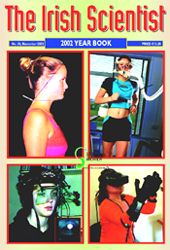
No.10 November 2002
Table of Contents
* * * * *
Index by topics
* * * * *
Index by Author
* * * * *
|

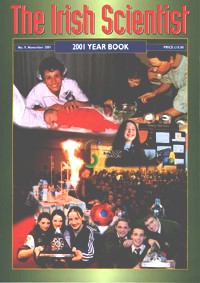
No.9 November 2001
Table of Contents
* * * * *
Index
by topics
* * * * *
Index by Author
* * * * *
|

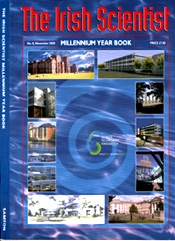
No.8 November 2000
Table of Contents
* * * * *
Index by topics
* * * * *
Index by Author
* * * * *
|

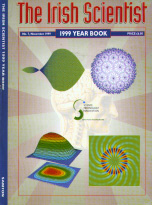
No.7 November 1999
Table of Contents
* * * * *
Index by topics
* * * * *
Index by Author
* * * * *
|
|
|
-
In the table of contents papers
are indexed by type or by originating organisation, as in the printed text.
-
The index by topics is by Scientific Discipline. Papers are grouped
by subject area. Some papers are accessible under more than one grouping.
Editor: Geraldine Van Esbeck
Oldbury Publishing,55 Kimmage Road West, Dublin 12;
Tel: (01) 465 2310; Fax: 465 2311;
E-mail: [email protected]
If you notice or experience any technical problems with the site (such
as broken links or images that do not load) we would like to hear from you at Irish
Scientist Web Service
|